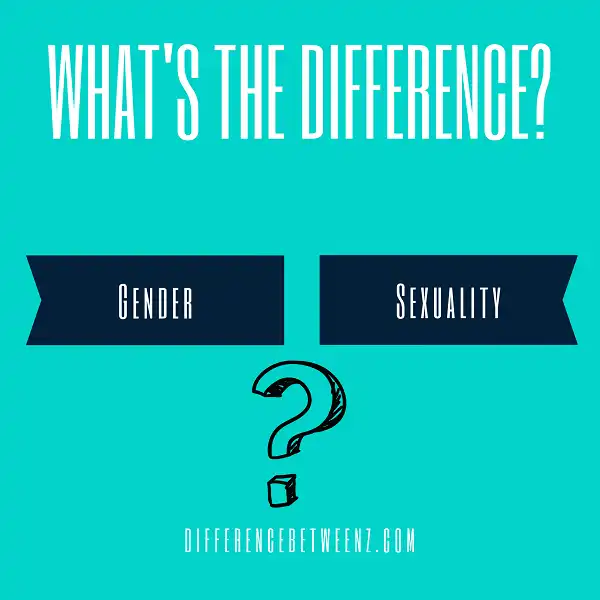When it comes to gender and sexuality, there are a lot of misconceptions out there. Some people think that they are the same thing, while others believe that they are completely different. In this blog post, we will explore the differences between gender and sexuality and talk about how they both affect people in different ways. We will also discuss how society shapes our understanding of these concepts. Are you ready to learn more? Let’s get started!
What is Gender?
Gender is often understood as the division of people into two distinct categories: male and female. However, gender is not always so simple. In many cultures, there are more than two genders, or the concept of gender may not exist at all. For example, in some Native American tribes, there are three genders: male, female, and berdache.
- Berdaches are individuals who dress and behave in a way that is traditionally associated with the opposite sex. In other words, they do not conform to Gender norms.
- Gender is also a social construct, which means that it is created by society. For example, in Western cultures, Gender norms dictate that women should be feminine and men should be masculine.
- These norms are learned through socialization or the process by which we absorb the values and beliefs of our culture. Gender norms vary from culture to culture, which means that what is considered masculine or feminine also varies. In some cultures, for example, it is considered masculine for men to wear skirts.
There is no single answer to the question “What is Gender?” because Gender is complex and changes from culture to culture. However, one thing is certain: Gender is an important part of our lives and shapes the way we see ourselves and the world around us.
What is Sexuality?
Sexuality is often thought of as simply a person’s sexual orientation, but it is actually much more complex than that. Sexuality includes a person’s beliefs, values, and behaviors around sex and intimacy. It is also influenced by one’s culture, family, and personal experiences. Sexuality is not static; it can change over time as a person grows and develops. Sexuality is a fluid concept that can be explored and celebrated in many different ways.
Differences between Gender and Sexuality
Gender and sexuality are two concepts that are often used interchangeably, but they actually refer to two different things.
- Gender refers to the socially constructed roles and characteristics of men and women. These roles and characteristics can vary widely from culture to culture.
- Sexuality, on the other hand, refers to a person’s sexual orientation or attraction to others. While gender is a social construct, sexuality is an innate quality.
- It is important to understand the distinction between these two concepts in order to avoid confusion. Gender affects the way we interact with others and how we are perceived by society, but it does not change our sexual orientation.
Likewise, sexuality does not dictate the roles we play in society or how we are treated by others. Rather, it is just one aspect of who we are.
Conclusion
The distinctions between gender and sexuality are becoming more complex as society becomes more open to different expressions of both. It’s important to remember that there is no one right way to identify, and we should embrace the diversity of sexual orientations and genders.


